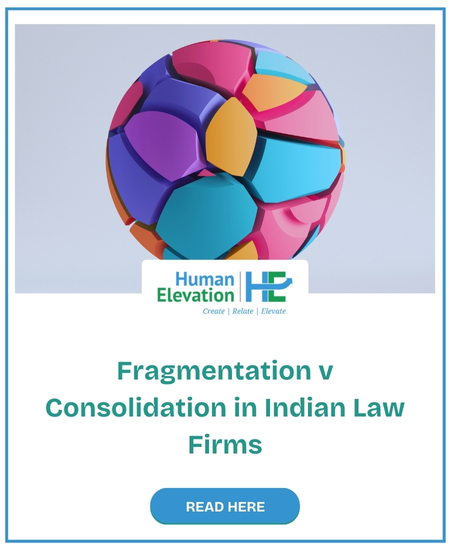
Competition is the driving force that rules fragmentation and consolidation of law firms in India. Fragmentation and consolidation should ideally perform a three-fold function that mitigates risks in the legal services realm and gives sustainable protection to clients, public interests and law firms themselves. While a fragmented market and a consolidated market may present different risks, it is difficult to assess the levels of ‘risk’ factors associated with its manifestation.
While consolidation has intensified, there has been a growth in fragmentation of law firms over a recent period of time. If we assess statistics for the last five years, there has been a steady rise of 30% to 50%. The top-level lawyers are leaving their lucrative jobs in large law firms to start their own firms. Equipped with an impressive clientele built over years of experience and financial support, this new breed of entrepreneurs is not hesitant about creating their own brand image by venturing into setting up their own firms. While the lack of growth opportunities in large law firms after reaching the partner level has been largely attributed to the evolution of this trend, There is a level of contentment in their small set up, which also adds to creation of their own identity. Market transition and the consumer demands have promoted the evolution of fragmented law firms with niche practice areas.
The process of consolidation is not waning. On the contrary, it has become the need of the hour. However, the firms in India have not evolved since most managing partners are viewing themselves as sole proprietors, who are skeptical about merging with their counterparts. The Indian firms have to liberalise their views and adopt the benefits of consolidation. Firms need to understand that the landscape of legal services has created an environment of risk, where sustainability is driven by client satisfaction, timely delivery of services and cost effectiveness. The need for recognition and position has triggered the trend of fragmentation but its sustenance is governed by qualitative output and financial viability.
The market changes have opened up avenues that have resulted in ease of access to legal services. Offering a broad range of services has accelerated consolidation. It has been witnessed in recent years that most firms who have grown through mergers have resorted to the same process for expansion and are predicted to continue this trend. They gain a competitive advantage on cost efficiencies and brand awareness that render failure in fragmented firms to maintain the momentum of work-flow. Hence, the large consolidated firms often lead the competition.
Fragmentation and consolidation have transformed the legal services domain, and law firms have become more alert about protecting consumer’s interests, mitigating potential risks and preserving the commercial aspects of the firm.
At Human Elevation, we’ve seen it up close—law firms striving to grow, lead, and retain talent in a profession that’s evolving faster than ever. What we’ve learned is simple: legal recruitment today isn’t just about credentials. It’s about character.
That’s why we focus on finding lawyers who are not only brilliant on paper but bring emotional depth, clarity, and presence to the table. People who understand that good lawyering is also about listening, leading, and lifting others around them.
We work with some of the most respected law firms and legal teams in India—and we do it quietly, personally, and with a real sense of purpose. If you’re looking to build a legal team that reflects where your firm is headed—not just where it is today—we’d love to help.






